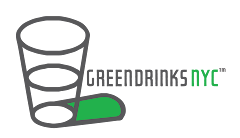Aug. 25, 2004 -- "Two new Australian studies show that many common household cleaners and appliances give off fumes, which can potentially increase the risk of developing asthma in children."
to read more visit web md., click here.
Recently, the EPA found that indoor air contains 2-5 times more pollution than outdoor air. In fact, the Consumer Product Safety Commission found that of the homes tested, the outdoor air contained less than 10 volatile organic compounds (VOC's) while the indoor air contained one-hundred and fifty VOC's. Many of the VOC's involved were traced to household cleaners.
for more,visit www.epa.gov/iaq/voc.html
For information on the effects of chemicals commonly found in your household cleaning products visit:
http://www.seventhgeneration.com/household_hazards
Practical Solutions
You can clean just about anything in your house using white distilled vinegar, dish soap, baking soda and washing soda(this is sold under the brand name Borax, and Arm and Hammer has recently come out with their own brand. You will find it in the laundry detergent section of most grocery stores.
Scouring powder for bathtubs, sinks and grout(serious grime)
Use washing soda and hot water to scrub clean, just as you would use any scouring powder. When cleaning grout, put the washing soda directly on the scrub brush and add hot water, or you can mix it in a spray bottle. For the tiles, you may need to scrub the grime off with the washing soda, but be sure to rinse it well or it will leave an unsightly residue. Vinegar works well to wipe off any residue.
Toilet Bowl
Pour some washing soda in the toilet and scrub with a toilet brush
Counter tops
You'll want to use straight baking soda here, not washing soda as it is more abrasive and can scratch counter tops.
Window Cleaner
Distilled White Vinegar
Note: You will need to make sure that the vinegar is completely wiped dry, otherwise it will streak.
Furniture Cleaner
Combine 1/4 cup (60 mL) of white vinegar in a bowl with a few drops of vegetable oil.
Soft Scrubber for pots and pans
Mix 1/4 cup of baking soda with enough liquid soap to create a frosting-like consistency.
Drain Cleaner
Pour 1/2 cup of baking soda and 1/2 cup of salt down the drain, add 1 cup of vinegar and follow that with 3 cups of boiling water-repeat as necessary. As a precaution I like to do this once a week whether I have a clog or not, just to keep the drains clear. If the clog is major you may need to use a plunger, but you don't want to use a commercial drain cleaner. They are highly toxic can be harmful if they get on your skin and the fumes they give off are unhealthy to breathe.
Oven Cleaner
Sprinkle 1/4 inch (6mm) of baking soda over the bottom of the oven. Keep the baking soda moist by periodically spraying water on it. Let it sit for six hours or overnight, then scoop the baking soda out and rinse the oven well.
Refrigerators inside and out:
We've found straight vinegar to work best but if you have a stubborn spill, you may need the more abrasive baking soda.
Always rinse all these solutions thoroughly. We recommend using vinegar to rinse any baking soda or washing soda residue.
Any residue will attract dirt quickly
For automatic dishwashers and laundry detergent:
Previously, I had recommended CalBen Soap Co. for dishwashing and laundry detergent, but I need to take back my recommendation since I've learned that their dishwashing detergent contains phosphates. Also, their laundry detergent hasn't been working too well for me. I'm now on the lookout for a better option and will keep you posted.


